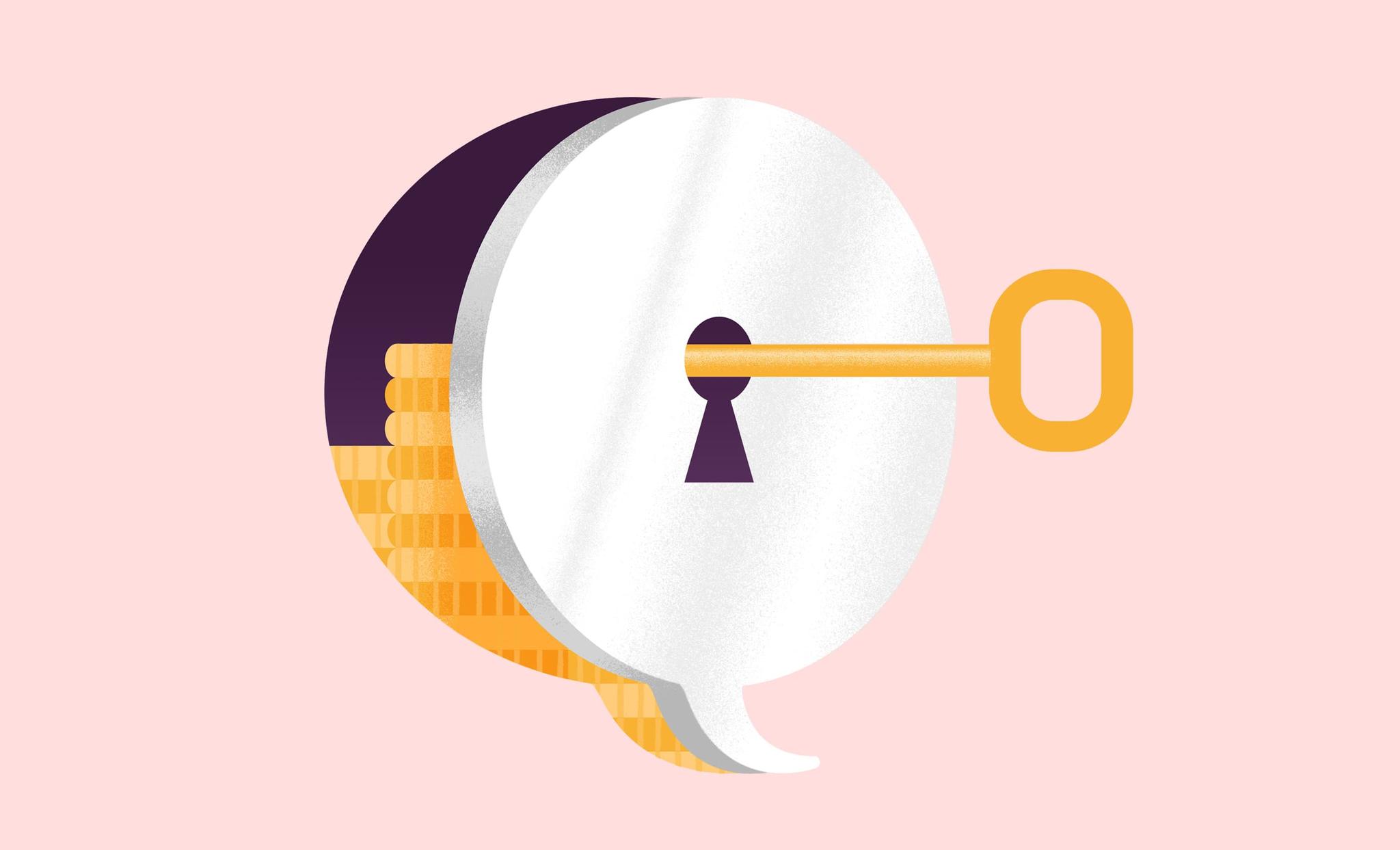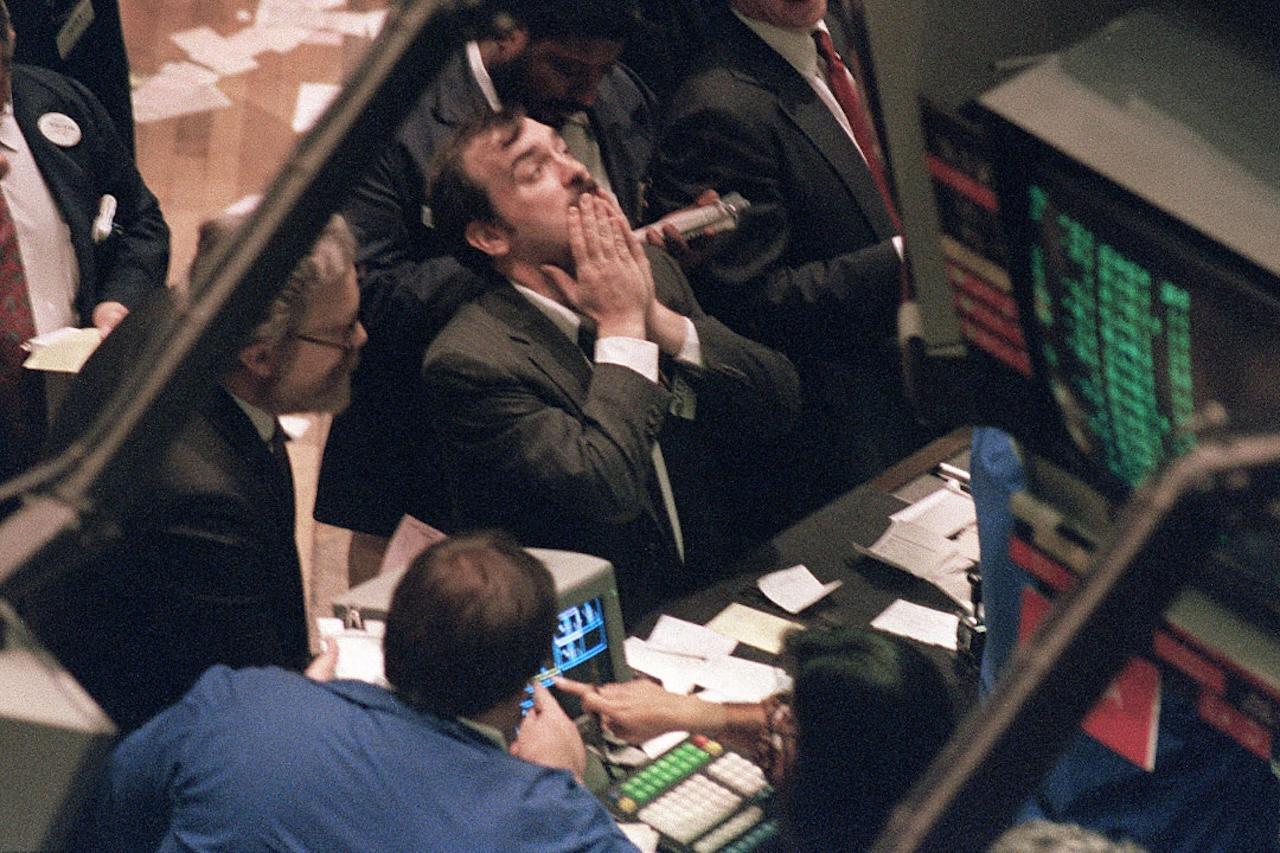
Finance for Humans
I Find the Stock Market Scary—Can I Just Close My Eyes and Put My Money in a Savings Account?
Wealthsimple tells you how to be just the right amount of brave with your money so you can reach your financial goals.
Wealthsimple makes powerful financial tools to help you grow and manage your money. Learn more
I had the Mad Max dream again last night. Everyone who’d invested their life savings in the market lost it all. We all had to drive around the desert, fighting over the last 100 buckets of KFC. Remind me why it’s not smarter to put all my money into a good savings account. I won’t make a fortune, but I won’t have to kill people for chicken wings, either.
The truth is there’s no safety in sticking your money in a savings account and locking your doors. Interest rates are incredibly low. You're probably going to make less than half of 1% in a savings account. Not only is that a rotten return on investment but worse, you’re going to have to contend with that nasty thing called inflation. Inflation means that every single year the cost of food, clothing—all your costs of living—go up. If inflation is bigger than your interest rate, you’re actually going to be slowly losing buying power as your money sits in the bank. It’s a bad deal.
Half a percent? I was surfing the Internet and found some banks offering 2%. I mean, it’s not great, but I might be able to live with it.
I think what you found online were teaser rates. Here’s how teaser rates work: A bank will offer you 2%. But then, in the fine print, they’ll say this rate can change at any time. They get you in, and then 60 days later, the rate goes back to something minuscule, like .5%.

Sign up for our weekly non-boring newsletter about money, markets, and more.
By providing your email, you are consenting to receive communications from Wealthsimple Media Inc. Visit our Privacy Policy for more info, or contact us at privacy@wealthsimple.com or 80 Spadina Ave., Toronto, ON.
OK, but I still like the idea that my money is going to be covered by the Canadian Deposit Insurance Corporation. It makes me feel good that no matter what happens—even if the bank fails—I don’t lose my money. If the world ever went Mad Max, the savings-account holders would become the aristocracy. They’d get all the chicken.
In a Mad Max scenario, you’d probably lose your savings account as well. We have seen this a few times globally. Look at Europe: When the financial system in Greece went under, people couldn’t get their money out of their savings accounts. There was a run on cash at the banks. That insurance policy works only up to a point—the zombie apocalypse, or the failure of the financial system, are beyond that point.
I think the root of my problem is that I still remember 2009. Half of my investment value disappeared virtually overnight. I’m still scarred.
Did you sell everything in 2009?
No, I stuck it out. It nearly killed me, but I did.
OK, then, look at you now—you've done well!
Recommended for you

Is This the Year to Try Wealthsimple Tax? (Um, Probably. Yes)
Finance for Humans

Five Tax Enigmas That Confuse Basically Everyone
Finance for Humans

Ask Lizzie: Is it OK if I Use Shopping to Make Me Feel, You Know, Happier?
Finance for Humans

You Probably Shouldn't Panic Sell to Avoid Drawdowns
Finance for Humans
Yes, but now wherever I look online for financial news, these ads pop up that promise that the next time will be worse. One said that this year we’ll see a 60% drop in the stock market. I began to hyperventilate.
There will always be fearmongers. Especially when markets are high. But if you look back, it turns out the fearmongers aren’t actually very good at predicting these kinds of downturns. Think about the 2008 recession or the bursting of the 2000 tech bubble or even the Great Depression: Almost no one actually predicted those things ahead of time.
But you have to acknowledge there’s a chance we’re about to fall off a cliff.
Look, there are going to be downturns. There will be recessions. There could even be a depression! But one of the things that has held steady through history is that the stock market tends to grow as the economy grows, as wages grow. That doesn’t mean it’ll always happen that way, but the odds are it will. I think that if you can maintain a level head and take the longer-term view, then even if something happens tomorrow or five years from now, you understand that the financial cost of being out of the market is far more painful than any event you fear.
I have a great idea for you. If Wealthsimple is so sure everything’s going to be cool, why don’t you start your own guarantee program? You could tell people: “If you lose it, we’ll give it back.” Would you consider such a thing?
No! The stock market is something that does not come without risk. Here’s the thing about investing in general: If you take no risk, you should expect no return. The corollary to that, of course, is if you want a high return, you should expect a lot of risk. A program of guarantees, like the CDIC, covers investments that are very low-risk with very little return. So unless you have so much money you don’t really need returns, there are no guarantees.
I’ve been thinking about what I call a Nervous Nelly strategy—mitigating risk by investing slowly over a long period of time rather than putting in a whole lot of money all at once.
What you’re talking about is called dollar-cost averaging. We like that approach. First, it’s never a bad idea to start with a floatie or some water wings when you're learning how to swim. You’ll get a sense for how investing works and what market fluctuations look and feel like. Second, if you invest, say, every month, you’ll avoid putting all your money into the market when it’s at a particularly high moment. And last, from a behavioural standpoint, it’s often more successful to set things up so you’re investing systematically—direct deposit, for instance. It happens every month or every paycheque, and you don’t have to decide whether now is a good time or not.
OK, so I have some questions about bond funds. I know that they generally offer lower returns than investing in equities, but I also hear they’re considered safer. My first question is a little dumb: What exactly is a bond?
Think of bonds as the debt of companies. It’s like a mortgage, except in this scenario, you’re the bank. You’re agreeing to lend these companies money, and they’re agreeing to pay you a certain interest rate for a specific period of time. It’s considered safer because as long as the company is in business, you’ll get your money back.
My second question is: Are bond funds my Goldilocks sweet spot? Like, if equities are too volatile and savings accounts too conservative, maybe bonds are just right?
Well, it’s true that you can look at it as a spectrum: A savings account would give you the least amount of return with the least amount of risk, and stocks would provide the highest potential return but with the highest amount of risk. Bonds would be in the middle. There are cases when I think having 100% of your money in bonds might be a good idea, but those cases are pretty specific. Like if a client’s timeline for investing is quite short, or if a client has so much money that he or she can actually live off of a smaller return. But for the vast majority of our clients—who are younger, who have time on their side, who need to grow their wealth—there should be some sort of equity component in their portfolios.
Part of what we do at Wealthsimple is figure out where you should be on the spectrum. How much of a client’s portfolio should be in stock ETFs (which invest in a collection of stocks) and how much should be in bond ETFs (which invest in bonds issued by a collection of companies). We’re here to help you find your Goldilocks portfolio—not too risky, but with enough upside for you to reach your financial goals.
Wealthsimple's education team is made up of writers and financial experts dedicated to making the world of finance easy to understand and not-at-all boring to read.





